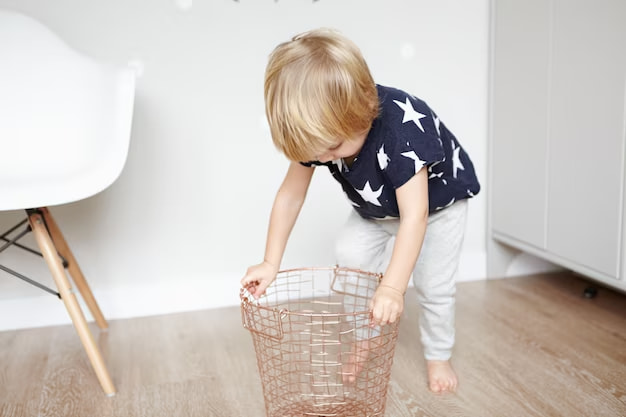Many parents wonder, “How long can a baby sleep in a bassinet?” A baby can sleep in a bassinet for approximately the first six months of their life. This period is generally considered safe and suitable for using a bassinet. However, it’s crucial to note that every baby is different, and individual circumstances may vary. Some babies may outgrow the bassinet before reaching the six-month mark, while others may continue to find comfort in it for a bit longer.
What Medical Science Says About How Long Can A Baby Sleep In A Bassinet?
The American Academy of Pediatrics (AAP) recommends that babies sleep in the same room as their parents for the first six to twelve months of their life. Placing a bassinet next to your bed allows you to keep a close eye on your baby and attend to their needs promptly. It also promotes safe sleep practices, reduces the risk of Sudden Infant Death Syndrome (SIDS), and facilitates easier nighttime feedings.
Can a baby sleep in a bassinet overnight?

Yes, babies can sleep in a bassinet overnight. Bassinets are designed to provide a safe and comfortable sleep environment for infants. They offer the advantage of keeping your baby close by during the night, allowing for easy access for feeding and comfort. However, it’s important to follow safety guidelines to ensure the well-being of your baby while they sleep in a bassinet.
Here are some tips to ensure safe overnight sleep in a bassinet:
- Safe Sleep Position: Always place your baby on their back to sleep. This position reduces the risk of sudden infant death syndrome (SIDS).
- Firm Mattress: Ensure that the bassinet mattress is firm and fits snugly without any gaps. A firm surface provides a safe sleep surface for your baby.|
- Breathable Bedding: Use lightweight and breathable bedding in the bassinet. Avoid using pillows, thick blankets, or stuffed animals that may pose suffocation hazards.
- No Loose Objects: Keep the bassinet free from any loose objects or accessories that may cover your baby’s face or pose a choking hazard.
- Monitor Temperature: Maintain a comfortable room temperature between 68°F and 72°F (20°C to 22°C) to prevent overheating.
- Supervision: Always keep an eye on your baby while they are sleeping in the bassinet. Monitor them closely for any signs of discomfort or distress.
Following these guidelines will help ensure that your baby sleeps safely and soundly in a bassinet overnight. However, it’s important to remember that every baby is unique, and individual sleep needs may vary. If you have any concerns or questions about your baby’s sleep habits or safety, consult with your pediatrician for personalized advice.
Remember, creating a safe sleep environment is essential for your baby’s well-being. By providing a secure and comfortable space for your little one to sleep, you can promote healthy sleep habits and peaceful nights for both you and your baby.
When should I transition my baby from a bassinet to a crib?
The ideal time to transition your baby from a bassinet to a crib varies depending on several factors. Generally, most babies are ready for the transition around 3 to 6 months of age. However, it’s important to consider your baby’s size, development, and individual needs. If your baby has outgrown the bassinet in terms of size or shows signs of increased mobility, such as attempting to roll over or sit up, it may be time to transition to a crib. Additionally, if you notice that your baby is consistently waking up or seems uncomfortable in the bassinet, it could be an indication that they are ready for a more spacious sleep environment. As a parent, trust your instincts and consult with your pediatrician for personalized guidance to determine the best time to transition your baby from a bassinet to a crib.
Can a baby outgrow a bassinet?
How long can a baby sleep in a bassinet?

Yes, babies can outgrow a bassinet. As they grow and develop, their size and mobility increase, and they may require more space to sleep comfortably. Most bassinets are designed for newborns and infants up to a certain weight or age limit. It’s important to regularly assess your baby’s size and ensure that they still have enough room to move and stretch within the bassinet. If your baby starts to appear cramped or uncomfortable, or if they are close to reaching the weight or age limit specified by the manufacturer, it may be time to transition them to a crib or another appropriate sleep option. Paying attention to your baby’s cues and monitoring their growth will help determine when they have outgrown the bassinet and need a larger sleep space.
Conclusion
How long can a baby sleep in a bassinet? A bassinet offers a convenient and cozy sleep option for your baby during the early months. By following recommended guidelines, monitoring your baby’s growth and comfort, and paying attention to developmental milestones, you can determine the appropriate duration for your baby’s sleep in a bassinet. Remember to prioritize safety and create a comfortable sleep environment for your little one to ensure peaceful nights and restful sleep.







